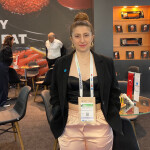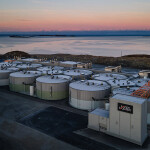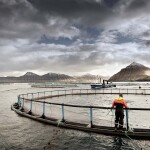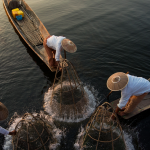Officials from Indonesia’s province of Lampung have committed to implementing a transformational management plan for the region’s blue swimming crab fishery, according to an announcement made at the Our Ocean Conference in Bali, Indonesia on 29 October.
Stakeholders including fishers, processors, and supply chain workers will be empowered in the decision-making processing for the fishery under the new plan, officials said. Lampung’s local leaders hope that by enacting new supply chain measures in the management plan – such as training on handling and strengthening the cold chain – they will demonstrate more support for sustainable practices, and ultimately increase the quality if the fishery’s products.
“This is a crucial opportunity for Lampung to develop a new model and demonstrate approaches for small-scale fisheries in Indonesia,” Head of the Lampung Province Planning and Development Agency Taufik Hidayat said. “Our plan is dedicated to ensuring a secure and sustainable source of income for Indonesians.”
Indonesia’s blue swimming crab fishery generates more than USD 300 million (EUR 262 million) in economic activity annually, serving as a prime source of income for thousands of Indonesians. As a means to fortify such a lucrative export fishery, the new plan put forth also aims to protect 230 square miles of juvenile crab habitat and limit the use of damaging fishing gear. Moreover, it would require small-scale fishers to register.
“Getting sustainable fishing right in Lampung is crucial for our province where there are more than 4,000 fishers, and more than 2,000 people in processing who rely on our coast for their food and livelihoods, said Imam Pudjono, the vice deputy of capture fisheries in Lampung. “We hope that lessons from Lampung can be helpful for other provinces in Indonesia.”
The plan comes as another success for the Lampung Provincial Fisheries Agency and its partners, Indonesian officials said. In less than two years, the Indonesian Ministry of Maritime Affairs and Fisheries (MMAF), the regional processors association, and academic experts, with facilitation by EDF and Starling Resources, worked in tandem with provincial government to create a brand new process for collaborative management planning and implementation, including the formal establishment of a multi-stakeholder body to design and implement a science-based management plan.
“This science-based plan is unique because it was developed in collaboration with the people who work in the fishery and live in the local community,” according to Muhammad Khazali, the senior manager of EDF Indonesia. “We know that management is only successful if we harness the knowledge and experience of local people — enabling and empowering them to put measures in place for a more sustainable future.”
While Lampung acts as one of the biggest blue swimming crab production sites in Indonesia, accounting for around 10 percent of Indonesia’s total production, its fishery is showing signs of overexploitation, officials said.
“Fishers talk about how their catches are declining, crabs are maturing earlier at smaller sizes, greater variation in annual fishing patterns, and unstable prices. These are all common stories that are happening too often around the world, but can be addressed with science-based, participatory management,” EDF said in a press release surrounding the new plan. EDF will continue to work with provinces, MMAF, and other partners in developing new models and methods for effective fisheries managements alongside communities like that of Lampung.
Ultimately, Lampung’s new fishery management plan for blue swimming crab balances on three key pillars that the region is confident will yield success.
“This new plan in Lampung has three critical ingredients for lasting sustainable management of fishing: scaled appropriately to ensure impact, scientific rigor, and community participation,” said Muhammad Taufik Hidayat, a senior associate at Starling Resources. “Scaling approaches like this one will lead to healthier fish populations and ecosystems, livelihood benefits to communities throughout the supply chain, and more opportunities to tip the global seafood system toward sustainability.”
Image courtesy of EDF and Alexis Rife






